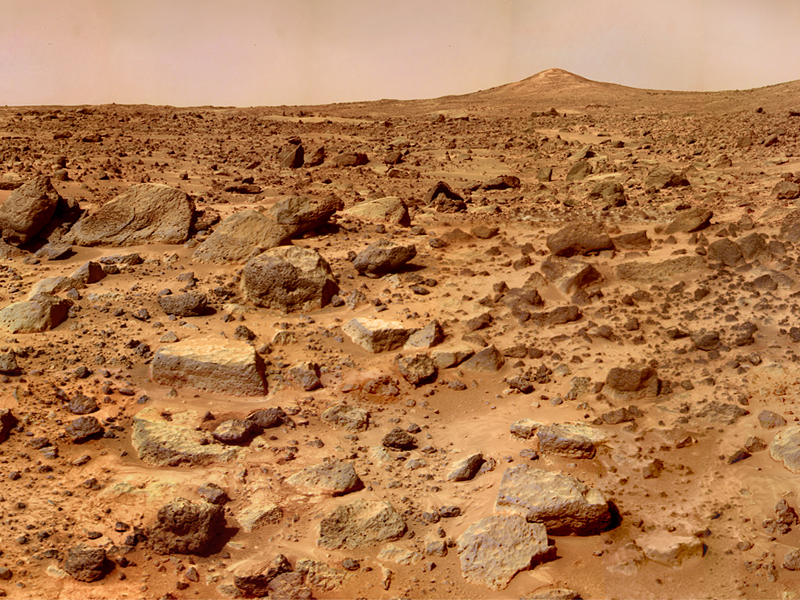
Name: Marie Goodall van Leeuwenhoek
Year: Junior
Major: Microbiology
Area of Study: Extraterrestrial Studies
Planet: Mars
When our space ship Minerva landed on the surface of Mars a few months ago, I looked out the window to get a better view at red planet. As I stared at the red and orange mountains, cliffs and valleys, I couldn’t help but feel a sense of childlike wonder and giddiness. I was going to spend an entire year here, studying the recently-discovered microorganism of the planet.
I was fortunate enough to be selected as the first student to ever travel to this planet. In fact, I am also the youngest human to ever set foot here. Additionally, I am only the 215th human being to ever land on Mars. It’s pretty amazing how far we’ve come since the great scientists George Eagle Cox first landed on this world in 2043.
Since then, NASA’s funding has gone through the roof. The organization has been able to fund multiple trips to this planet for the past 70 years. When I heard about the possibility of studying abroad at this planet, I instantly jumped on board. I was selected from a pool of over 10,000 students. My grades and and my education at UCR inevitably made me stand out. Now I am here.
So what’s my role here? I’m an assistant researcher helping NASA and SpaceX scientists study the tiny forms of life that were discovered here just 10 years ago. Our work is mostly conducted at the Bill Nye Laboratories located inside a huge oxygen-filled dome. We named this dome the Neil DeGrasse Tyson Colony, after the famous astronomer from the early 2000s. In fact, there are about seven dome colonies that humans have built on this planet.
But studying the microorganisms is merely one part of the trip. My boss, a researcher for NASA, intends to do greater things. His mission is to jumpstart Animalia life on Mars. In other words, he intends to turn the Archaebacteria life forms found on this planet into the beings we have on Earth: mammals, amphibians and insects. Needless to say, his research has received mixed feedback from people back home as some have accused him of committing crimes against humanity.
Nevertheless, we’re moving forward with our research.
On the rare days that we get to step foot outside our dome colony, we must put on NASA-provided space suits that allow us to breath our normal oxygen on the world whose atmosphere is mostly composed of carbon dioxide. Those days are the best.
On those days we get to travel via rover all across the red world. We hike mountains, drill deep into the planet looking for water and even go spelunking deep inside the underground caves formed by the now-dried rivers that once flowed through Mars. We actively search for microorganisms such as bacteria, algae and even fungus. When we do find some, we take it back to the lab for further study. I feel like a modern-day adaptation of the fictional character Indiana Jones from the 1900s.
Another of my boss’s goals is to find land on the planet hospitable enough to grow plants so that the planet would reproduce its own oxygen. So far, that goal has proven to be a little too far fetched. This planet’s current conditions don’t seems to allow the natural growth of plants yet.
Perhaps the most beautiful part of being here is getting to see the sun set from Mars. That yellow orb in the sky may not shine as brightly as it does on Earth, but its sight is impressive nonetheless. On a clear enough day, we can even see the pale blue dot known as Earth floating in the sky from over 35 million miles away.
My experience here has literally been out of this world. Everyday is a privilege that I do not take lightly. When I really think about it, I realize that I’m part of the next great thing that has happened to humanity. I have a chance to explore, learn and change the lives of many for millennia to come. Here, at this lab, we understand what our responsibility is: We’re the next trailblazers of our human race. We have the opportunity to step outside of our comfort zone and wander into the new frontiers of our own solar system.
Who knows? In a few years, we could be wandering the frontiers of the rest of our galaxy. After that, the universe.
It’s such an honor to represent UCR at Mars. I strongly encourage students to try things like this more often. Traveling abroad has taught me more about life that I could have imagined. The sky’s not the limit, UCR. Let’s extend our hands and reach farther than that.
I’ll see you back on Earth.







